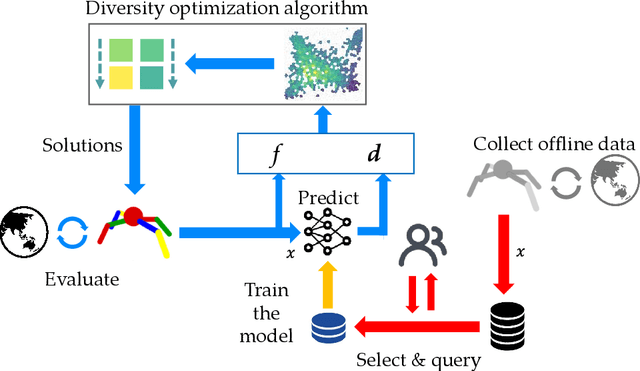Diversity from Human Feedback
Paper and Code
Oct 10, 2023



Diversity plays a significant role in many problems, such as ensemble learning, reinforcement learning, and combinatorial optimization. How to define the diversity measure is a longstanding problem. Many methods rely on expert experience to define a proper behavior space and then obtain the diversity measure, which is, however, challenging in many scenarios. In this paper, we propose the problem of learning a behavior space from human feedback and present a general method called Diversity from Human Feedback (DivHF) to solve it. DivHF learns a behavior descriptor consistent with human preference by querying human feedback. The learned behavior descriptor can be combined with any distance measure to define a diversity measure. We demonstrate the effectiveness of DivHF by integrating it with the Quality-Diversity optimization algorithm MAP-Elites and conducting experiments on the QDax suite. The results show that DivHF learns a behavior space that aligns better with human requirements compared to direct data-driven approaches and leads to more diverse solutions under human preference. Our contributions include formulating the problem, proposing the DivHF method, and demonstrating its effectiveness through experiments.
 Add to Chrome
Add to Chrome Add to Firefox
Add to Firefox Add to Edge
Add to Edge